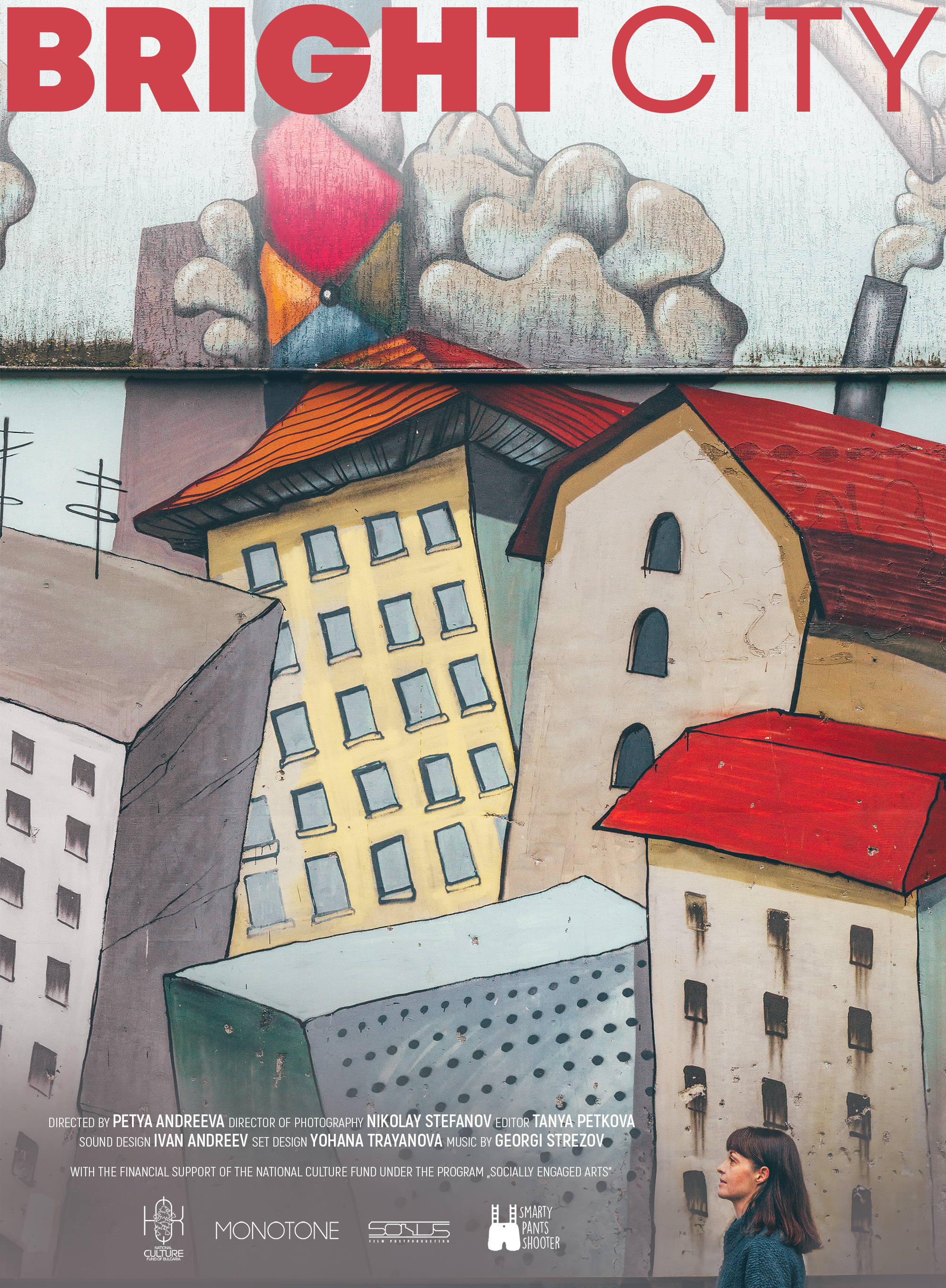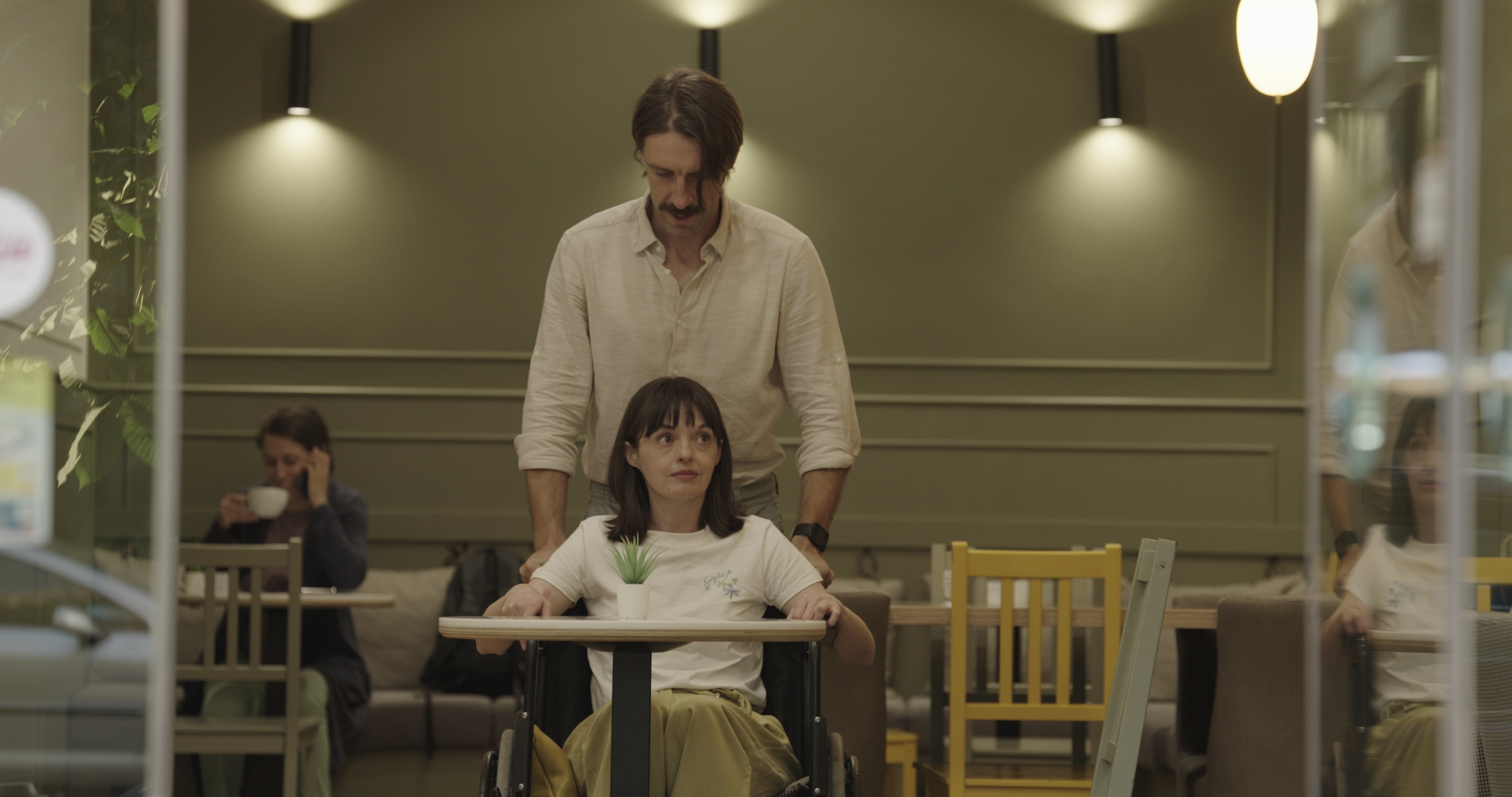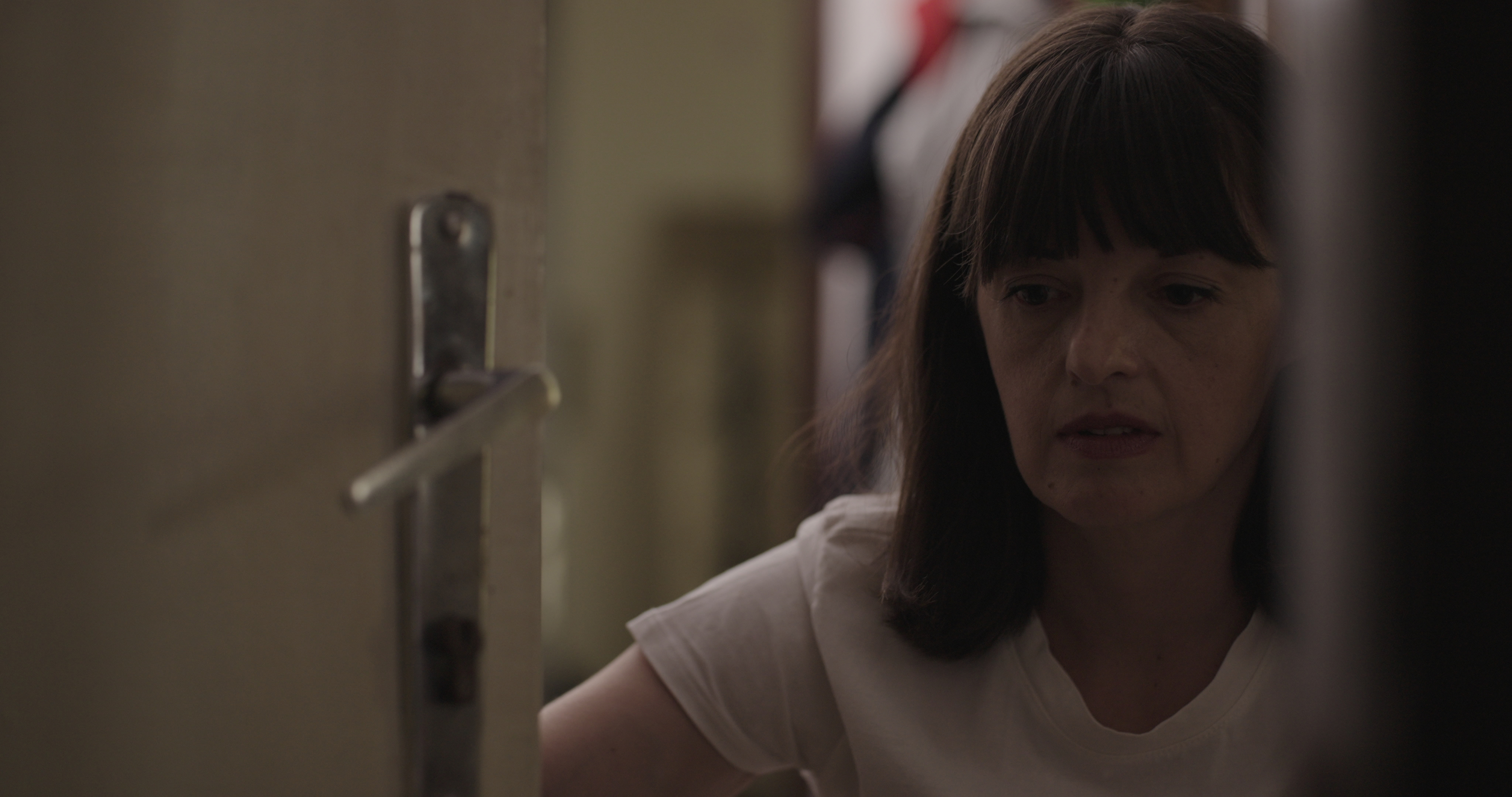COLLECTABLE STORIES: BRIGHT CITY

BRIGHT CITY
Short Talk with Petya Andreeva (director)

Bulgaria / 2024 / 11‘30‘‘
BEST STUDENT FICTION FILM Category
21st IN THE PALACE International Short Film Festival 2024
Synopsis: After an extended period at home, a woman embarks on an adventure outside, attracted by the thought of getting a cake. Her journey to the bakery fraught with unexpected challenges. The once-simple task becomes a test of her resilience as she faces obstacles that complicate her mission.
Biography: Born in 1985 in Yambol, Bulgaria. Graduated Masters Degree in “Film directing” in New Bulgarian University. A writer and director of short films "Room number three","Trampoline" and "Millions of cats" and the documentary film "An hour of theatre". Also worked as assistant director of international documentary projects.

Petya Andreeva, director
Neda Valcheva (author): What pushed you to make a movie that explores such problems?
Petya Andreeva (director): The story that inspired the film comes from my personal experience when I met an old man in a wheelchair at the metro station. It was around 10 pm, when I saw the man heading to the metro exit toward a bus stop, he was struggling to get to the stop and went home. I waited around half an hour with him for his bus, and he told me his story. He was returning from a book event and the people around us, waiting for the bus, were asking him why he was out so late. It seemed to me that people in wheelchairs do not have the right to go to any events. I felt very bad for him, but at the same time the man, who must be around 74 years old, was with such high spirit and I just wanted to live his life.

Neda Valcheva: Was the old man your inspiration for the main character?
Petya Andreeva: On one hand I did not want to tell the same story, I wanted to show something similar and simple: like a person in a wheelchair, who, for example, wants to get a cake and wants to go out. Two very simple things, but it is a challenge for the main character. People, who have survived something, are much happier that they are alive. So, this is the reason why my character sees the good in the small things. It is a movie about the spirit of a person.
Neda Valcheva: You have delivered a powerful message: to enjoy the little blessing in life.
Petya Andreeva: Anyone can get stuck and feel like they are in a hole, but this can bring something good into your life, so enjoy life.

Neda Valcheva: We can feel the good and the bad in Bright City, however, at the end the overall feeling is happiness.
Petya Andreeva: Yes, I just did not want to make it too dark. We know the situation might be bad at the moment, but let’s try to see what bright we can pull out from it. I love to see the good part in life, even if the occurrence is bad. This is what I wanted to show in the movie and I think, that I managed to do it.

Author's view (Kaloyan Vasilev):
Even in the darkest moments, there can be a glimmer of light. This is the idea shared with us by director Petya Andreeva in her work Bright City. She balances moments of misfortune with the unexpected beauty which can emerge from them in a city where inclusiveness isn’t really a priority.
Bright City is a work of constant opposition. We are shown both the charm and the challenges of a city like Sofia: from astonishing Bulgarian street art and beautiful locations to the stark reality of how unsuitable it can be for disadvantaged people. Through a simple story about someone who just wants to enjoy something as seemingly “accessible” as a cake — Andreeva raises awareness about how complex and exhausting this can be for someone in a wheelchair.
Bright City is a bittersweet exploration. It does not shy away from harsh truths, yet still makes room for hope and quiet joy. While the film confronts the systemic inaccessibility which isolates many, it also reminds us of the resilience of the human spirit and the small gestures of kindness that light up even the most indifferent corners of a city. Andreeva’s storytelling does not offer easy solutions, but it does encourage empathy — and that, perhaps, is the brightest message of all.






